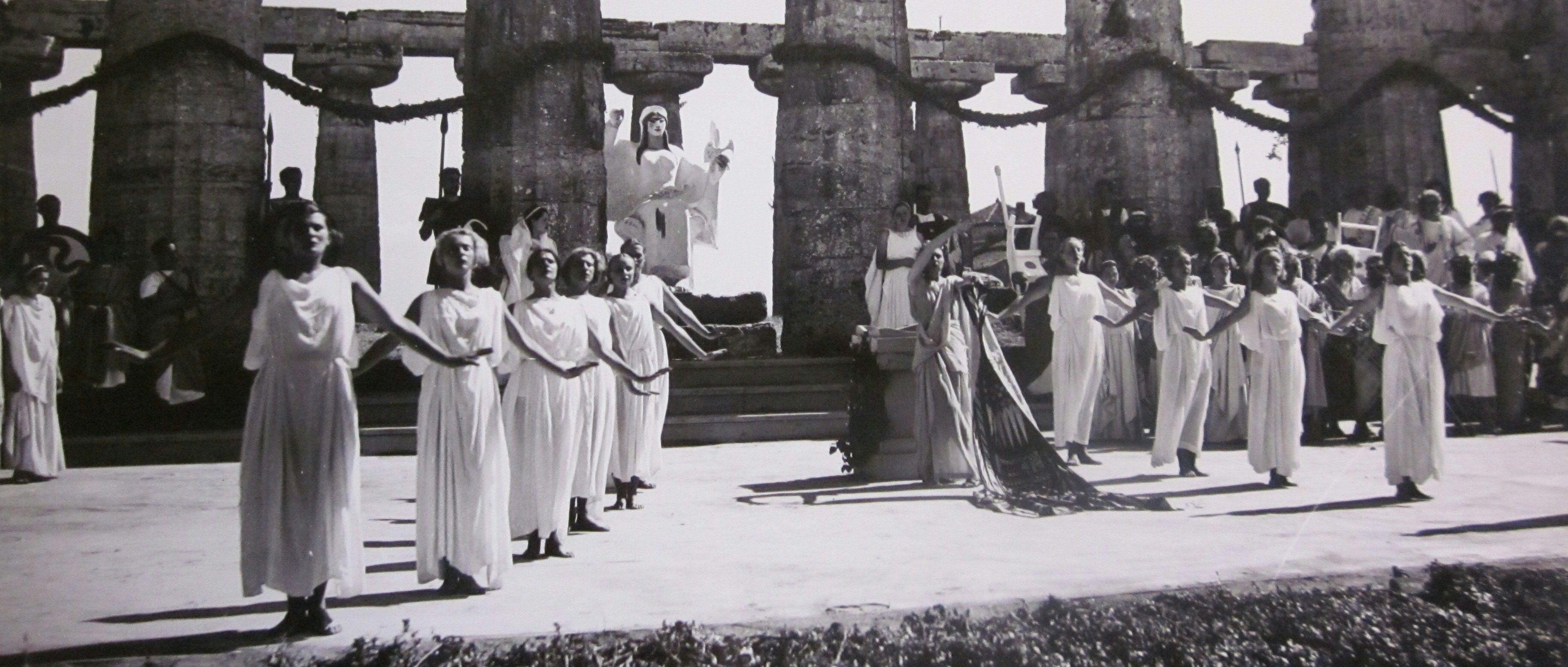Symposium - The Fascist Archive in Performance: Classical Reception in Film and Live Events under Mussolini

The glorification of classical antiquity under fascist regimes was not underpinned by a static view of tradition but sought to create a symbiosis between past and present, which was core to the narrative of national regeneration. The material, visual, and performative practices used to frame and monumentalise the past under Mussolini were attempts to grant the Fascist state cultural and historical legitimacy. Not unlike the pseudo-scholarly work of fascist classicists and historians, cultural production played an active role in demonstrating the historical and spiritual continuity with Rome. At the same time, the revival of the classical past was an expression of Fascism’s desire to modernise culture. This is evident in the way Italian Fascism deployed new media technologies, modernist architecture, and performance aesthetics in reimagining Rome and disseminating the cult of romanità, whilst rethinking the very meaning of the classical.
The aim of the symposium is to foreground fascism’s effectiveness not only in reviving the past but also in embodying the key principles of modernisation. The symposium will explore the role of theatre, film, large-scale spectacles and their performative sites in reconceptualising the classical in Fascist Italy; it will do so by focussing on the affordances of performances and media, but also on the synergies between liveness and mediatisation in terms of cultural transmission.
Taking Italian Fascism as an example, the symposium will invite speakers to reflect on the practices of documentation and archiving of fascist regimes and their implications for the study of fascist art and culture. What challenges are we faced with as researchers when encountering the textual, visual, and material testimonies produced under fascism? How do we approach these sources to analyse fascism’s relationship with the classical past, especially when it comes to live events? How can we unravel the archived cultural memories of fascism and unpick our shared histories of classical reception?
The symposium is the second in a series of events on classical reception under Italian Fascism, bringing together scholars whose work has approached fascism from different fields and interdisciplinary perspectives. The first event Classics and the Spectacular under Fascism took place at the Classics Centre, University of Oxford on the 16th of December 2019.
